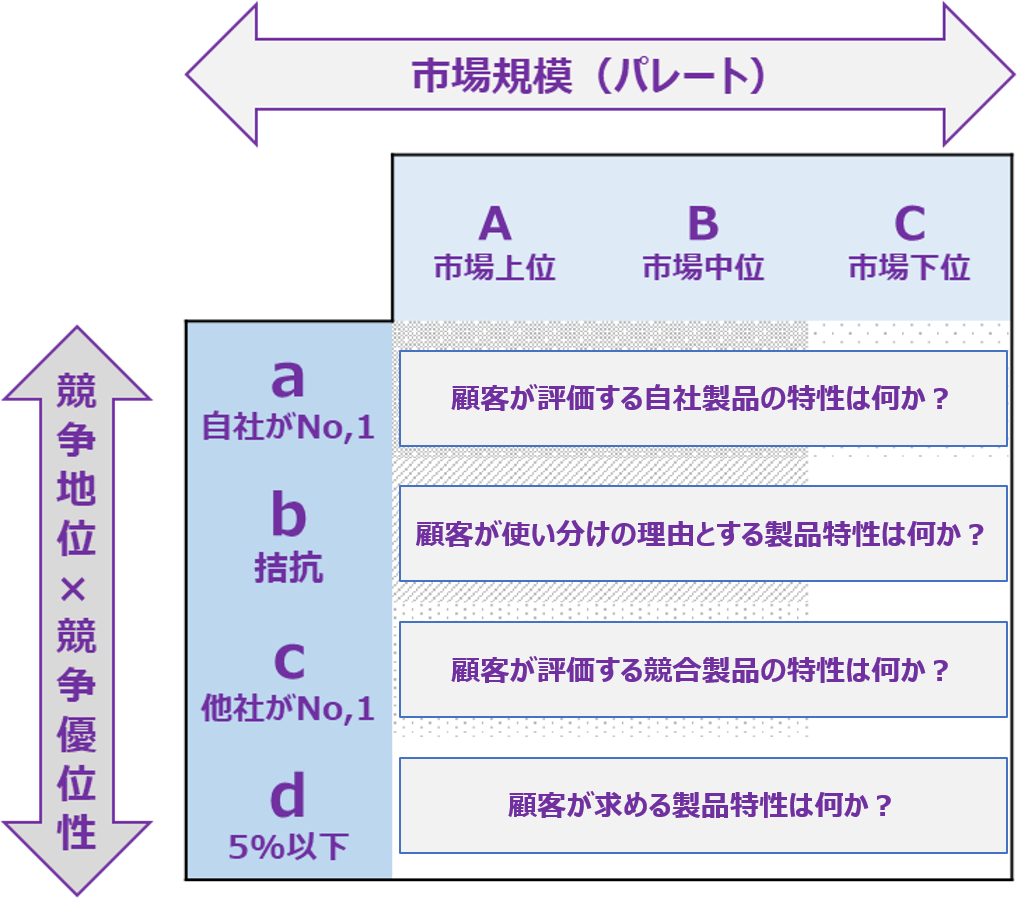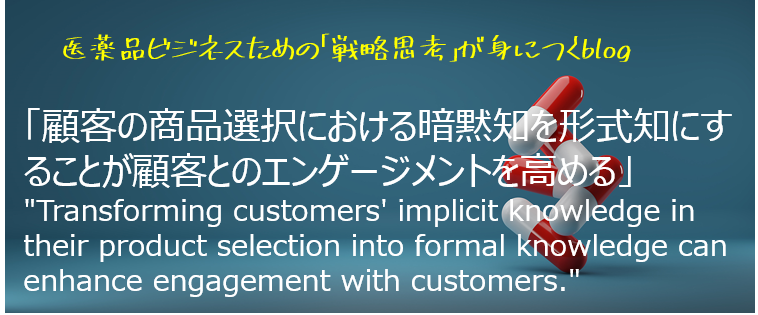
顧客は、商品を選択する際に感情や直感といった無意識に従って選ぶことがあります。
さらに医薬品では、社会的影響や周囲の影響によってそれらを選択することがあるため、顧客自身でもなぜその商品を選んだのか、その理由を自覚していないことは珍しくありません。
営業担当者は、この顧客個人の経験や勘といった主観的な「暗黙知」を情報やデータといった客観的に言語化されてた「形式知」にする必要があります。
営業担当者は顧客がなぜその商品を選んだかを理解し、その情報を活用して、顧客のニーズや好みに合わせた提案をすることが重要です。
ただし、顧客が意識的に選択した場合と無意識のうちに選択した場合とでは、情報の収集方法やアプローチが異なる場合があります。
私が考案し特許を取得したマトリクス分析法を用いれば、精度の高い仮説により、顧客の属性分類を行うことで、」仮説検証の精度を高め、正確で信頼性および一貫性のある結果を得ることができます。
#マトリクス分析法 #暗黙知 #形式知 #エンゲージメント #製薬 #医薬品
“Transforming customers’ implicit knowledge in their product selection into formal knowledge can enhance engagement with customers.”
Customers sometimes make choices unconsciously based on emotions or intuition when selecting products.
Additionally, in the case of pharmaceutical products, social and environmental influences may also affect their choices, making it rare for customers to consciously recognize the reasons why they selected a particular product.
Sales representatives need to transform the subjective “implicit knowledge” of the customer’s personal experience and intuition into objective “formal knowledge” that can be expressed in language and data.
It is important for sales representatives to understand why customers chose a particular product and use that information to make proposals that fit their needs and preferences.
However, the methods and approaches for collecting information can differ depending on whether the customer made a conscious or unconscious choice.
By using the matrix analysis method that I developed and patented, high-precision hypotheses can be made, and customer attributes can be classified to increase the accuracy of hypothesis testing and obtain results that are accurate, reliable, and consistent.

